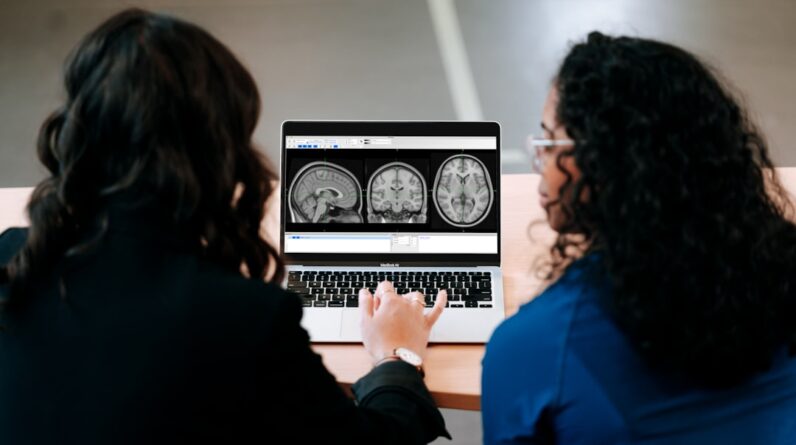Artificial Intelligence (AI) has emerged as one of the most transformative technologies of our time, reshaping industries and redefining the way we interact with the world. As you delve into the realm of AI, you will discover its vast potential to enhance efficiency, drive innovation, and solve complex problems. From self-driving cars to virtual assistants, AI is not just a futuristic concept; it is a present-day reality that is influencing various aspects of life.
Understanding AI is no longer a luxury but a necessity, as it permeates every sector, from healthcare to finance, and even education. As you explore the intricacies of AI, you will find that it encompasses a wide range of technologies, including machine learning, natural language processing, and robotics. These components work together to create systems that can learn from data, adapt to new inputs, and perform tasks that typically require human intelligence.
The implications of AI are profound, prompting discussions about ethics, job displacement, and the future of work. By engaging with AI now, you position yourself at the forefront of a technological revolution that promises to reshape society in ways we are only beginning to understand.
Key Takeaways
- AI is revolutionizing the way we learn and work, making it important for individuals to adapt and embrace lifelong learning.
- Early childhood education can benefit from AI through personalized learning experiences and early exposure to technology.
- High school and university education in AI can prepare students for future careers and equip them with essential skills for the digital age.
- Adult learning and AI go hand in hand, offering flexible and accessible opportunities for upskilling and reskilling in the workforce.
- Career transitions can be facilitated by AI through targeted training and development programs, enabling individuals to adapt to changing job markets.
Early Childhood Education and AI
Personalized Learning Experiences
Interactive educational apps utilize AI algorithms to adapt content based on a child’s progress, ensuring they remain engaged and challenged at an appropriate level. This individualized approach helps children develop at their own pace, building confidence and a strong foundation for future learning.
Data-Driven Insights for Educators
AI can assist educators in identifying areas where children may struggle. By analyzing data on student performance, AI systems can highlight specific skills that need reinforcement, allowing teachers to intervene promptly. This data-driven approach empowers educators to make informed decisions about their teaching strategies and curriculum design.
Creating a More Inclusive Learning Environment
The potential of AI in early childhood education is vast, creating a more inclusive and effective learning environment that sets the stage for lifelong learning. By harnessing the power of AI, educators can provide young children with a strong foundation for future success, helping them grow into curious, confident, and critically thinking individuals.
High School and University Education in AI

As you transition into high school and university education, the importance of AI becomes even more pronounced. Educational institutions are increasingly incorporating AI into their curricula, preparing students for a future where these technologies will be ubiquitous. In high school, you may encounter introductory courses on AI and machine learning that provide foundational knowledge and spark interest in this dynamic field.
These courses often emphasize hands-on projects and real-world applications, allowing you to engage with AI concepts actively. At the university level, the landscape expands further. You have the opportunity to specialize in various aspects of AI, from data science to robotics.
Universities are investing in research initiatives that explore innovative applications of AI across disciplines, encouraging collaboration between computer science and other fields such as healthcare, environmental science, and social sciences. As you immerse yourself in this academic environment, you will not only gain technical skills but also develop critical thinking abilities essential for navigating the ethical implications of AI technologies.
Adult Learning and AI
Adult learning presents a unique opportunity for individuals seeking to enhance their skills or pivot their careers in response to the growing demand for AI expertise. As you embark on this journey, you will find that numerous resources are available to facilitate your learning process. Online platforms offer courses ranging from beginner to advanced levels, allowing you to learn at your own pace while balancing other responsibilities.
These courses often feature interactive elements such as quizzes and projects that reinforce your understanding of complex concepts. Additionally, adult learning programs often emphasize practical applications of AI in various industries. You may have the chance to participate in workshops or boot camps that focus on real-world problem-solving using AI tools.
This hands-on experience not only solidifies your knowledge but also enhances your employability by equipping you with skills that are highly sought after in today’s job market. As you navigate adult learning in AI, remember that your previous experiences and knowledge can serve as valuable assets in this new educational endeavor.
Career Transition and AI
If you find yourself contemplating a career transition into the field of AI, you are not alone. Many professionals from diverse backgrounds are recognizing the potential of AI to revolutionize their industries and are eager to acquire new skills. As you consider this shift, it is essential to assess your current skill set and identify areas where you may need further development.
For instance, if you come from a background in business or marketing, understanding data analytics and machine learning could significantly enhance your ability to leverage AI in decision-making processes. Networking plays a crucial role in facilitating your career transition into AI. Engaging with professionals already working in the field can provide valuable insights into industry trends and best practices.
You may also discover mentorship opportunities that can guide you through the learning process and help you navigate potential challenges. By actively seeking connections within the AI community, you position yourself for success as you embark on this exciting new chapter in your career.
Continuing Education and AI

In an ever-evolving field like AI, continuing education is paramount for professionals looking to stay relevant and competitive. As you progress in your career, you will likely encounter new developments and breakthroughs that require ongoing learning. Many organizations offer professional development programs focused on emerging technologies within AI, allowing you to deepen your expertise while keeping pace with industry advancements.
Moreover, attending conferences and workshops can provide invaluable opportunities for networking and knowledge sharing. These events often feature industry leaders who share insights into cutting-edge research and applications of AI. By participating in these gatherings, you not only expand your professional network but also gain exposure to innovative ideas that can inspire your work.
Embracing a mindset of continuous learning will empower you to adapt to changes in the field and seize new opportunities as they arise.
The Importance of Lifelong Learning in AI
Lifelong learning is essential in the rapidly changing landscape of AI. As technology continues to advance at an unprecedented pace, staying informed about new developments is crucial for both personal growth and professional success. You may find that adopting a lifelong learning mindset allows you to remain agile in your career, enabling you to pivot when necessary and embrace new challenges with confidence.
Furthermore, lifelong learning fosters curiosity and creativity—qualities that are invaluable in the field of AI. By continually seeking knowledge and exploring new ideas, you cultivate an innovative spirit that can lead to groundbreaking solutions and advancements. Whether through formal education or self-directed study, committing to lifelong learning ensures that you remain at the forefront of this dynamic field while contributing meaningfully to its evolution.
Finding the Best Age to Learn AI
As you reflect on your journey through the world of AI education and career development, it becomes evident that there is no singular “best age” to learn about this transformative technology. Whether you are a young child discovering the joys of interactive learning tools or an adult seeking to pivot your career toward this exciting field, opportunities for growth abound at every stage of life. The key lies in recognizing your unique circumstances and motivations while embracing a mindset of curiosity and adaptability.
Ultimately, your engagement with AI will depend on your willingness to explore new ideas and commit to continuous learning. Regardless of when you begin your journey into AI, remember that each step taken contributes to your understanding and mastery of this complex field. By remaining open to new experiences and challenges, you position yourself not only for personal success but also for meaningful contributions to a future shaped by artificial intelligence.
If you are interested in exploring the intersection of AI and creativity, you may want to check out the article AI and Creativity: Exploring Machine Art, Music, and Literature. This article delves into how artificial intelligence is being used to create art, music, and literature, showcasing the innovative ways in which AI can enhance human creativity.
FAQs
What is the best age to learn AI?
The best age to start learning AI is typically in high school or college, as it requires a strong foundation in mathematics and computer science.
Is there a minimum age requirement to learn AI?
There is no strict minimum age requirement to start learning AI, but a solid understanding of mathematics and programming concepts is necessary.
Can adults learn AI as well?
Yes, adults can definitely learn AI. Many online courses and resources are available for individuals of all ages to learn AI at their own pace.
Are there any advantages to learning AI at a young age?
Learning AI at a young age can provide a head start in understanding complex concepts and developing problem-solving skills that are valuable in the field of AI.
What are the challenges of learning AI at a young age?
The main challenge of learning AI at a young age is the need for a strong foundation in mathematics and computer science, which may require additional support and resources for younger learners.






